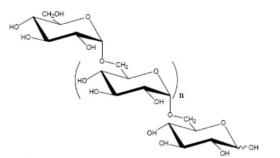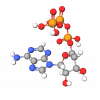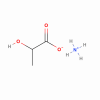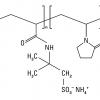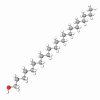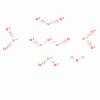Dextran is a polysaccharide (polyglucan) from glucose units composed of α-C1-C6 linked chains of different lengths. Dextrans polymer chain length varies from very short (water-soluble) to very long (insoluble). They are formed by the breakdown of sucrose in a manner similar to enzymatic inversion, except the glucose portion of the sucrose molecule is linked into a growing molecular chain (dextran) rather than released.
Dextrans are generally produced in sugar process streams by Lactobacillus, Leuconostoc, and Streptococcus bacteria. Bacterial polyglucans were a big issue in sugar processing for more than 100 years but thanks to recent developments these byproducts found their use in the food industry as thickeners, viscosity control agents, and personal care products with multiple beneficial functions.
To meet the growing needs of the cosmetics industry, Pierre Monsan’s team in Toulouse (LISBP-INSA) has developed new enzymes transforming sugar into glucan-saccharases. One specific enzyme (DSR-S) allows synthesizing from saccharose a glucose polymer dextran and obtaining in one step dextrans with controlled molecular weight and various structures (types of bond, size).
These molecules of dextran, produced through an environmentally-friendly process, can be used for a large range of applications in cosmetics, biomedical and chemical industries: proven biocompatibility, controllable viscosity which is a key factor for the cosmetic formulation, the active ingredient for water retention, stimulation of cell growth as a major property for tissue regeneration, encapsulation of other active ingredients, biopolymer substituting synthesized polymer.What are the benefits of Dextran for the skin?
In skin care applications Dextran helps formulators control the viscosity of formula acting as a thickening agent or stabilize emulsions while improving biocompatibility and providing additional benefits for the skin including:
- The active ingredient for water retention
- Stimulates cell growth
- Provides energy and boosts tissue regeneration
- Balances skin microbiota
- Protects other active ingredients and promotes their delivery.
